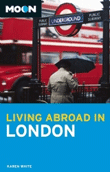Property in London: Useful British Real Estate Terms
By Karen White
Summary: From mews to terraced houses, exchange contracts to stamp duty land tax, author Karen White provides a helpful laundry list of British real estate terms and their definitions.
Useful Real Estate Terms
Here is a list of important British real estate terms for both buyers and renters:
- Administration Fees: Fees charged by letting agents for processing references and preparing the lease and inventory.
- Agent: A person (or a company) who has been authorized to act on behalf of a landlord, such as a letting, management, or estate agent (realtor).
- Assured Shorthold Tenancy: This type of tenancy gives the landlord the right to repossess their property at the end of the lease.
- Bedsit: A single occupancy room with shared bathroom in a private house, usually used by students.
- Break Clause: This clause can be included in a fixed-term tenancy agreement and enables either the tenant or landlord to terminate the tenancy earlier than the end of the original fixed term. It is also sometimes called a release clause.
- Completion: This is the point at which ownership of a property is transferred from the seller to the buyer and the balance of the purchase price (minus the deposit) is handed over.
- Contractual Tenancy Agreement: This type of tenancy agreement may be used when the annual rent is greater than £25,000.
- Conversion: An older house that has been remodeled into two or more flats or maisonettes; may also refer to a warehouse or another industrial building that has been turned into residential property.
- Conveyance: The legal term for the transferring of property ownership from one person to another.
- Cottage: An old rustic smaller-style house that often has a garden where centuries ago the residents would grow vegetables and flowers.
- Council Tax: This is an annual tax charged by local authorities in the United Kingdom that is based on the relative value of the property. Both homeowners and tenants must pay this tax, although students living in student accommodations may be exempt.
- Direct Debit: An instruction from a bank account holder to authorize regular collection of money from their account; often used to pay bills or mortgage payments.
- Exchange Contracts: This is the point at which the seller and buyer are legally bound to go through with the property sale, and the deposit is paid to the seller. Up until this point either party can pull out of the purchase.
- Flat: The British term for an apartment, usually on one floor of a building. Many flats in London are from converted houses.
- Freehold: A type of ownership in which the property owner owns the property and the land that it stands on in perpetuity.
- Gas Safety Regulations: Landlords must have annual gas safety checks carried out and a copy of the report must be given to the tenant.
- Ground Rent: The money paid to the freeholder for use of the land and property.
- Holding Deposit: This is a nominal amount (usually one or two weeks' rent) that a potential tenant pays to get a property taken off the market, and it shows their good faith in renting the property . If the letting doesn't proceed because the lessee pulled out or their references were not acceptable, then the deposit will be retained by the agent. If it goes ahead, then the funds can be applied to the first month's rent or the security deposit.
- Inventory: This lists the contents, condition, and state of a property, including the garden and garage if applicable. Usually an independent inventory clerk will assess a property before and after a tenancy, with a report going to the landlord and the tenant.
- Joint Tenancy: Joint ownership of a property by two or more people, whereby a partner's share is "inherited" by the other partners upon his or her death.
- Land Registry: A register of property in the United Kingdom, which records freehold and leasehold properties (if the lease is for seven years or more).
- Leasehold: This is a type of long-term tenancy for property (often for a flat or apartment) where the land that the property stands on is owned by the freeholder. The leasehold will pay the freeholder ground rent fees . When the lease expires, ownership of the property returns to the freeholder, though a new lease is usually organized .
- Let: The British term for renting.
- Local Authority Search: This is carried out on behalf of the buyer and asks the local authority about any outstanding enforcement issues or future developments that could affect the property or nearby areas.
- Maisonette: An apartment that is set over two or more floors.
- Mansion Block: A period building (usually Victorian or Edwardian) specifically designed to contain generously proportioned flats. These tend to be in the more upmarket areas of town.
- Mews house: A small terraced house converted from an old stable and carriage building, often on a cobbled street. Usually in the traditional wealthy areas of town, these houses have lots of character and often come with a garage.
- Purpose Built Block: A modern apartment building that was built just to contain apartments.
- Reference Check: A landlord (or his or her agent) checks a potential tenant's suitability to pay the rent, their ID, and their track record on previous rentals. This often involves contacting previous landlords and the potential tenant's employer (or accountant if self-employed).
- Semi-detached: Property joined to another house on just one side.
- Service Charge: An annual fee to help cover the cost of running a building and looking after communal areas.
- Stamp Duty Land Tax: A tax levied on legal documents that need a stamp, such as deeds of title; similar to a transfer tax in the United States.
- Standing Order: A request by an account holder that instructs the bank to send a specified amount of money to a particular account on a regular basis; often used to pay rent (similar to a monthly bank transfer).
- Tenancy Deposit Scheme: All landlords, or their agents, that take deposits for assured shorthold tenancies must join the Tenancy Deposit Scheme to provide protection for the tenant's deposit and a mediation service should a dispute arise.
- Terraced Houses: A row of houses linked to each other on both sides; very common in London.
- Townhouse: A Georgian or Victorian house set out over several floors, sometimes with as many as five floors.
From the book Moon Living Abroad in London by Karen White. Excerpted by arrangement with Avalon Travel, a member of the Perseus Books Group. Copyright © 2012. For more information, visit http://www.moon.com.
About the Author
Karen White, the author of Moon Living Abroad in London, was born and raised on the West Coast-but she always longed to broaden her horizons and live in Europe for a while. When the opportunity to study as an undergraduate student in southern England arose, Karen went for it... and she fell in love with Britain in the process. She moved to London a few years later to start life as a graduate student. She spent her spare time there exploring narrow, ancient streets in the City of London, London's historic core; visiting numerous galleries and museums; and spending way too much money in fashionable boutiques and trendy markets. All of these activities were usually followed by a half-pint of bitter. She also met her British husband during this time, sealing her fate as a future Londoner.
Save for a two-year stint back in California, Karen has been based in England for nearly two decades now. She has worked as a copywriter and copyeditor for advertising and corporate communication companies in London, as well as a multinational British corporation. She is now a freelance copywriter, producing marketing material for companies on both sides of the Atlantic. She lives in London with her husband and two children.
Additional Information:
- UK Guide
- Healthcare & Health Insurance in UK
- Members Talk about Healthcare & Health Insurance in UK
- Best Places to Live in UK
- Real Estate in UK
- Guide to Real Estate in UK
- Pros & Cons of Living in UK
- Cost of Living in UK
- 5 Tips for Living in Gerrards Cross, England
- 5 Tips for Living in Sevenoaks, England
- 5 Best Suburbs for Expats Living in London
- 5 Tips for Tech Jobs in London
- 2025 Guide to Living in UK
- Pros and Cons of Living in UK 2025





